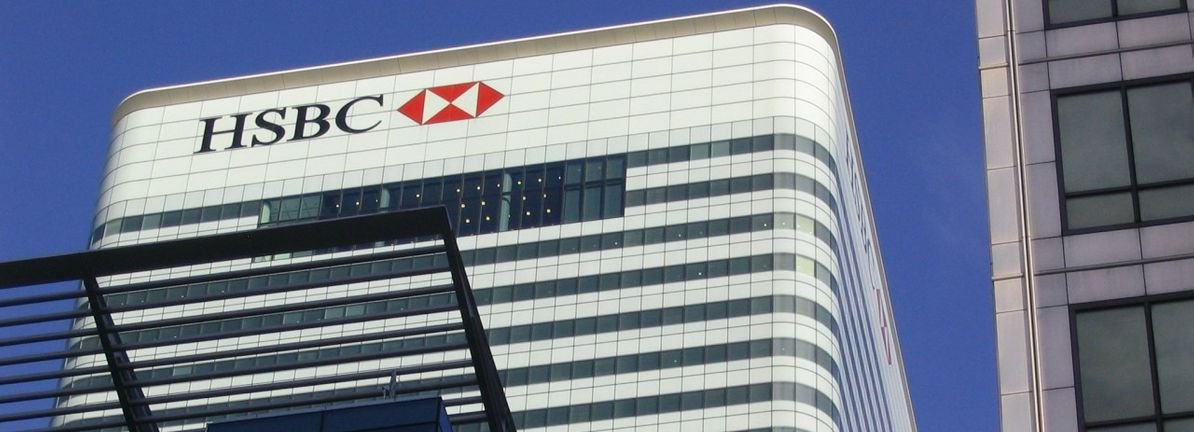What’s in Store for HSBC Holdings? A Deep Dive into Valuation and Growth Potential
Wondering if HSBC Holdings might finally offer real value, or if the current price leaves limited upside? Let’s dive in and unpack what the numbers are saying.
Impressive Share Price Growth
HSBC shares have been on a remarkable run, rising 3.1% over the past week, 11.7% in the last month, and an impressive 41.0% year-to-date. In fact, the stock has surged by 62.5% over the last year. This momentum hasn’t gone unnoticed, as investors are keenly watching the market commentary surrounding sector re-ratings, strategic divestitures in Asia, and a growing optimism about HSBC’s unique global footprint in today’s economic environment.
Moreover, discussions about the bank’s digital transformation strategy and capital allocation have further fueled this rally, generating buzz among investors. Amid these developments, the pressing question remains: does this growth translate into true value, or are we witnessing a speculative uptick?
Valuation Insights: The Mixed Signals
Despite the upbeat market sentiment, HSBC Holdings currently holds a valuation score of 2 out of 6. What does this mean? Simply put, there’s a divergence in the valuation approaches, and some red flags have emerged that warrant consideration.
Using the Excess Returns valuation approach, we get a clearer picture of HSBC’s potential. This metric evaluates how much profit a company can generate above its cost of equity capital, helping us understand whether HSBC is earning more than what investors require in return for the risks they take.
- Current Projections:
- Book Value: £9.94 per share
- Expected Earnings Per Share (EPS): £1.52 (estimated from 17 analysts)
- Cost of Equity: £0.92 per share
- Excess Return: £0.60 per share
- Average Return on Equity: 13.99%
- Predicted Stable Book Value: £10.89 per share (according to eight analysts)
This analysis suggests that the intrinsic value of HSBC Holdings is significantly above its current trading price, indicating that the stock is 33.7% undervalued right now.
The PE Ratio Perspective
Another critical metric to consider is the Price-to-Earnings (PE) ratio, which provides insight into how much investors are willing to pay for each pound of the bank’s earnings. Currently, HSBC trades at a PE ratio of 15.1x, significantly higher than both the banks’ industry average of 10.2x and peer average of 11.2x.
This premium valuation could suggest that investors expect rapid earnings growth or view HSBC as a lower-risk investment. However, using basic averages can often be misleading, as they fail to incorporate unique growth opportunities and company-specific risks.
Simply Wall St offers a proprietary measure called the Fair Ratio, which estimates what HSBC’s PE ratio ought to be. This metric considers factors like earnings growth, profit margins, risk profiles, and industry conditions:
- HSBC’s Fair PE Ratio: 9.8x
- Current PE Ratio: 15.1x
The glaring difference suggests that HSBC may be overvalued based on this approach.
Examining the Nuances of Valuation
So, which valuation method paints a more accurate picture? The contrasting insights lead us to explore a broader narrative. HSBC’s stock could be seen as both undervalued by Excess Returns and overvalued by the PE ratio method.
Given the mixed signals, it’s essential to dig deeper. Simply Wall St employs a concept called Narratives, allowing investors to express their unique perspectives on a company. This method combines numbers—like estimates of fair value and future earnings—with the underlying business story.
In the case of HSBC, community insights reveal differing perspectives on its fair value. Some investors envision growth through HSBC’s digital innovation and Asian wealth management, setting fair values as high as £11.29 per share. Conversely, more cautious investors factor in margin risks and macroeconomic uncertainties, predicting a fair value closer to £7.93.
Keeping an Eye on HSBC’s Future
As HSBC navigates a dynamic economic landscape, keeping abreast of valuation shifts remains crucial. Exploring various perspectives, community insights, and robust metrics like Excess Returns and PE ratios provides a comprehensive frame of reference for potential investors.
Are you leaning towards optimism regarding HSBC’s growth trajectory, or do you have reservations based on current valuations? Engaging with the community and leveraging the wealth of data available can empower you to make a well-informed decision.
For the latest news and valuations, be sure to consult the community and track your interests on platforms like Simply Wall St.





